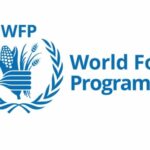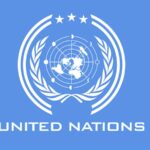Between 2017 and 2020, over 3.2 billion dollars had been mobilized for humanitarian response in the North-East, United Nations Resident Coordinator and Humanitarian Coordinator in Nigeria, Edward Kallon has said.
Speaking Thursday in Abuja at an event to mark this year’s World Humanitarian Day with the theme ‘Climate Change organised by the Ministry of Humanitarian Affairs, Disaster Management and Social Development, he said funds were used in providing life-saving assistance to over 5.5 million people annually in the affected zone.
- Australian varsity, IT firm offer Nigerians student online study options
- Jos killings: Baptist Convention demand FG’s intervention
He pointed out that the crisis in North-East Nigeria was a complex situation that required the collective collaboration of different actors in the search for a durable solution.
According to Kollon, a total of 1.01 billion US dollars was required this year to provide humanitarian assistance to 8.7 million people in the affected states, stressing that, 1.4 million people were displaced in northwest Nigeria.
“The situation is also very dynamic with an estimated 1.9 million currently displaced in the worst affected states of Borno, Adamawa, and Yobe. In addition, an estimated 1.6 million displaced people have returned to relatively safe areas in the Bay States with limited basic services and livelihood opportunities.”
Also speaking, the Economic Community of West African States (ECOWAS) Commissioner for Social Affairs and Gender, Dr. Fatimata Dia insisted that time was already running out for millions of the world’s most vulnerable people.
On his part, Vice President, Yemi Osinbajo challenged stakeholders to join TheHumanRace to stop climate change in its tracks by utilizing the guidelines of the Framework through a localized approach to tackling the environmental issues faced in Nigeria.
Minister for Humanitarian Affairs, Sadiya Umar Farouq noted that the framework would enhance disaster preparedness, prevention, mitigation and strengthen disaster risk information, governance and infrastructure.
She said that effective coordination and coherence amongst all relevant actors in the aid sector was needed for the successful implementation of the framework.
She called on all aid sector stakeholders to work closely with the Ministry to create an implementing strategy for the National Humanitarian Development Peace Framework

 Join Daily Trust WhatsApp Community For Quick Access To News and Happenings Around You.
Join Daily Trust WhatsApp Community For Quick Access To News and Happenings Around You.


